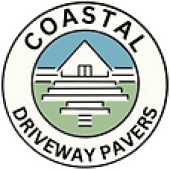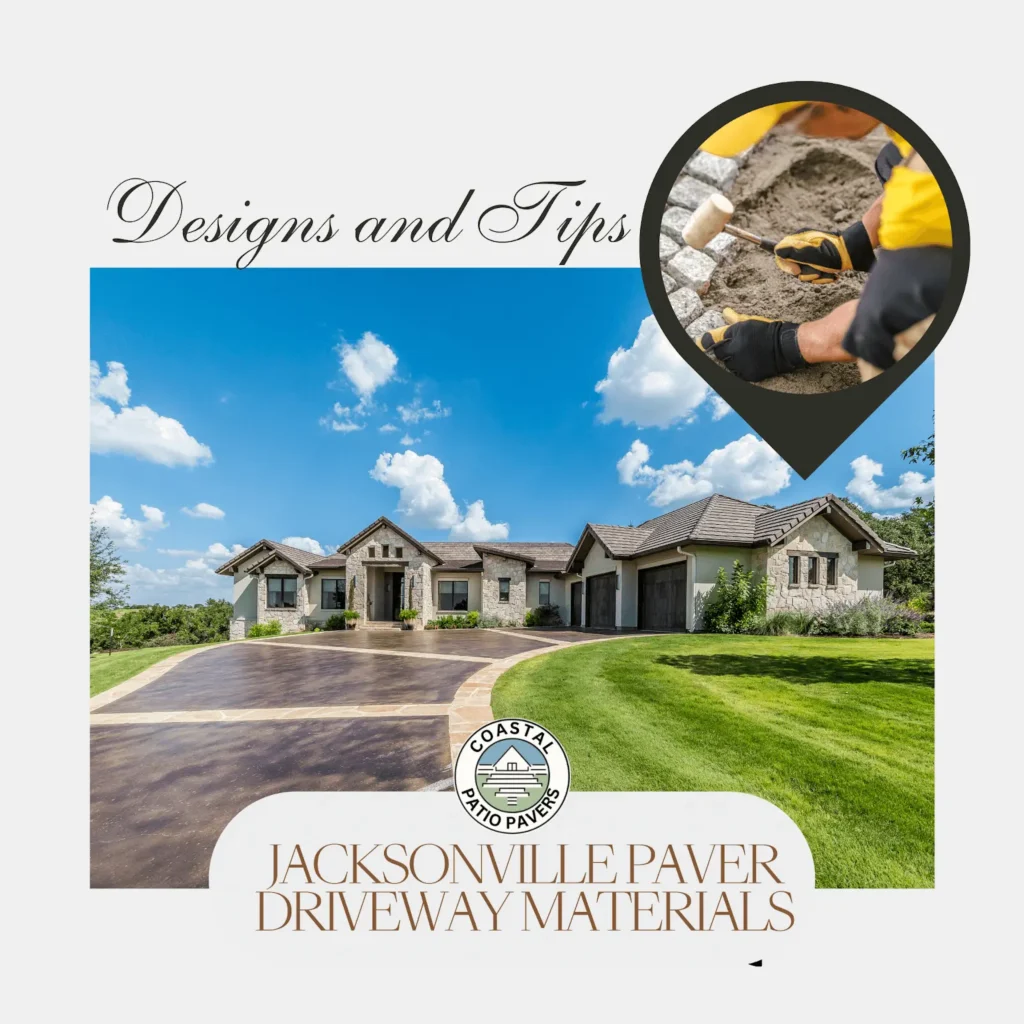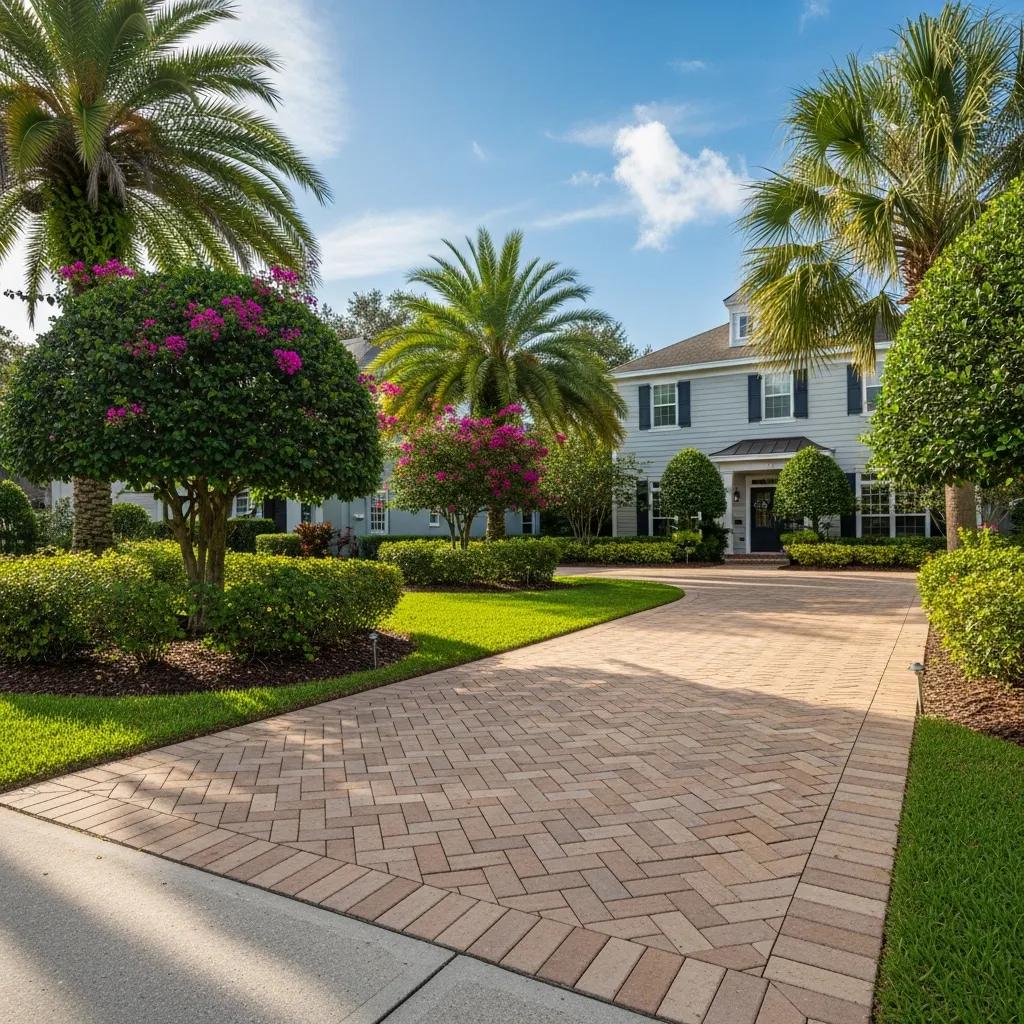If you’re looking to transform your home’s curb appeal, consider a Jacksonville driveway paver. Opting for a driveway paver not only boosts your home’s visual charm. It also offers substantial benefits in durability and design flexibility.
Understanding the engineering behind these materials can show you why they are an excellent choice for your Jacksonville home. Intrigued? Keep reading to discover how you can make your driveway the envy of the neighborhood!
Choosing the Right Materials for Your Paver Driveway
Choosing the right materials for your paver driveway is key to ensuring it looks great and lasts a long time. Let’s explore the four popular materials. Each offers a wide range of colors, patterns, and textures that can elevate the look of your driveway.
Natural Stone Pavers
Natural stone pavers, like granite or slate, bring a touch of elegance and a natural look to your driveway. These pavers come in various earthy gray colors, browns, and greens. They are known for their unique textures and can be laid in random or uniform patterns, adding character and style to your outdoor living space.
Brick Pavers
Brick pavers are a timeless choice, offering a classic, warm look with their reddish-brown tones. These beautiful brick pavers are extremely durable and can be arranged in various patterns such as herringbone or basket weave, adding a traditional charm to your driveway.
Travertine Pavers
Travertine, a type of limestone, is prized for its light, natural tones ranging from ivory to soft browns. Its porous nature provides a non-slip surface, making it a safe option for areas with frequent rain. Travertine pavers can be laid in a French pattern for a modern aesthetic look that enhances outdoor spaces.
Concrete Pavers
Concrete pavers are highly versatile and come in a wide variety of colors, from natural earth tones to more vibrant hues. They can be molded into different shapes and textures, mimicking the look of brick or stone at a more affordable price point. Concrete driveway is ideal for those who want durability and customization without the higher cost of natural stone.
Concrete vs. Clay Pavers
When deciding between concrete and clay pavers, it’s important to consider their differences. Concrete pavers are known for their strength and flexibility in design. They are manufactured in a controlled environment, allowing for uniformity in size and shape, which makes them easier to install.
Clay pavers, on the other hand, offer a rich, natural color that won’t fade over time. They provide a more traditional look and are generally more environmentally friendly due to their natural composition and long-lasting nature.
Related Article: Transform Your Home with Elegant Driveway Paver Designs
Innovations in Paver Technology
Advancements in paver technology have made it easier than ever to find the perfect option for your driveway. New treatments and techniques have improved the durability of driveway materials, making them resistant to weather-related damage and fading.
Innovations such as interlocking pavers provide increased stability and ease of maintenance. In addition, permeable pavers offer solutions for better water management. This innovation reduces runoff and promotes natural drainage.
Material selection for your paver driveway involves balancing aesthetics, budget, and functionality. With so many options available, you can find the perfect pavers to complement your home and landscape while providing a durable, long-lasting driveway.
Suggested Reading: 4 Creative Paver Driveway Ideas to Enhance its Appeal
Advanced Installation Techniques for Optimal Durability
Installing a paver driveway is not just about laying stones—it’s about building a durable pathway that will last for years. Here’s how advanced installation techniques can ensure your driveway not only looks good but also withstands the test of time.
Proper Foundation Setting
The foundation is critical for the longevity of your driveway. Start by digging about 7 to 9 inches below the desired final surface level to create space for the base material. The next step is to add a layer of sub-base, typically made of crushed stone. This layer should be compacted properly to provide a stable, even, and smooth surface.
Compaction should be done in layers, each about 2-3 inches thick, using a plate compactor. This process helps prevent the premium pavers from shifting and cracking over time.
Drainage and Sustainability Considerations
Effective drainage is essential to protect your driveway from water damage, especially in areas prone to heavy rain. Slope the driveway slightly (about 1% incline) away from your home to encourage water runoff and prevent pooling.
Incorporating permeable pavers is another great technique. These allow water to seep through the driveway into the ground below, reducing runoff and helping to recharge groundwater.
For added sustainability, consider using recycled materials for the base layers or choosing eco-friendly paver options. These choices not only support the environment but can also be cost-effective in the long run.
These advanced techniques, while initially more labor-intensive, pay off by minimizing future maintenance needs and enhancing the overall durability of your paver driveway.
Troubleshooting Common Paver Driveway Issues
Maintaining a paver driveway sometimes means addressing common issues that pop up over time, such as uneven pavers and unwanted weeds. Here are some straightforward solutions to keep your driveway looking great.
Fixing Uneven Pavers
Uneven pavers can occur due to a wide range of reasons, including improper base preparation or natural settling over time. To fix this, first, remove the affected pavers. Check the base material underneath— it might need to be leveled or more material might need to be added. Once the base is flat and compact, replace the pavers, making sure they sit level with the surrounding stones. Tapping them gently with a rubber mallet can help set them in place securely.
Eco-friendly Weed Prevention
Weeds popping up between pavers can spoil the look of your driveway. To prevent weeds naturally, start by ensuring your pavers are closely spaced; this leaves less room for weeds to grow. For existing weeds, pulling them by hand or using a simple tool can be effective. To prevent future growth, consider pouring boiling water over the weeds, which is a natural way to kill them without harmful chemicals.
For a longer-term solution, lay landscaping fabric under the pavers when installing the driveway. This acts as a barrier that prevents weeds from sprouting. Filling the joints between pavers with polymeric sand can also help lock them in place and block weed growth.
Addressing these common issues as they arise not only keeps your driveway functional but also maintains its aesthetic appeal for years to come.
Seek Professional Service From Paver Contractors
Installing a beautiful paver driveway in Jacksonville isn’t just about boosting curb appeal. It’s about a blend of style and durability. The right technical knowledge is key to ensuring your driveway is both beautiful and functional. Understanding the types of materials available, proper installation techniques, and how to handle common issues can make all the difference in achieving a driveway that stands the test of time and weather.
Coastal Driveway Pavers specializes in providing expert paver driveway installation that meets both aesthetic and functional needs. Trust your driveway project to a skilled team who knows exactly how to bring your vision to life with expertise and exceptional service.
Ready to transform your driveway into the highlight of your property? Contact Coastal Driveway Pavers today and take the first step toward a stunning and durable driveway that you’ll love for years to come.
Frequently Asked Questions
In Florida, concrete and brick pavers are excellent choices for driveways. They withstand the humid weather and heavy rainfall well. Concrete pavers offer versatility in design, while brick pavers provide a classic look that ages beautifully.
Yes, investing in a paver driveway is worth it. Pavers not only enhance the aesthetic appeal of your home but also increase its value. They are durable, easy to repair, and can handle the weight of vehicles without cracking as easily as other materials.
Absolutely! Pavers are a popular choice for driveways. They are strong enough to support vehicles and come in an array of colors and styles, allowing for customized design options that match your home’s exterior.
The best size for quality driveway pavers typically ranges from 4×8 inches to 6×12 inches. Larger pavers are more stable under heavy traffic and can make the driveway appear more spacious. However, the choice of size often depends on the specific pattern and design you want to achieve.

Written By:









